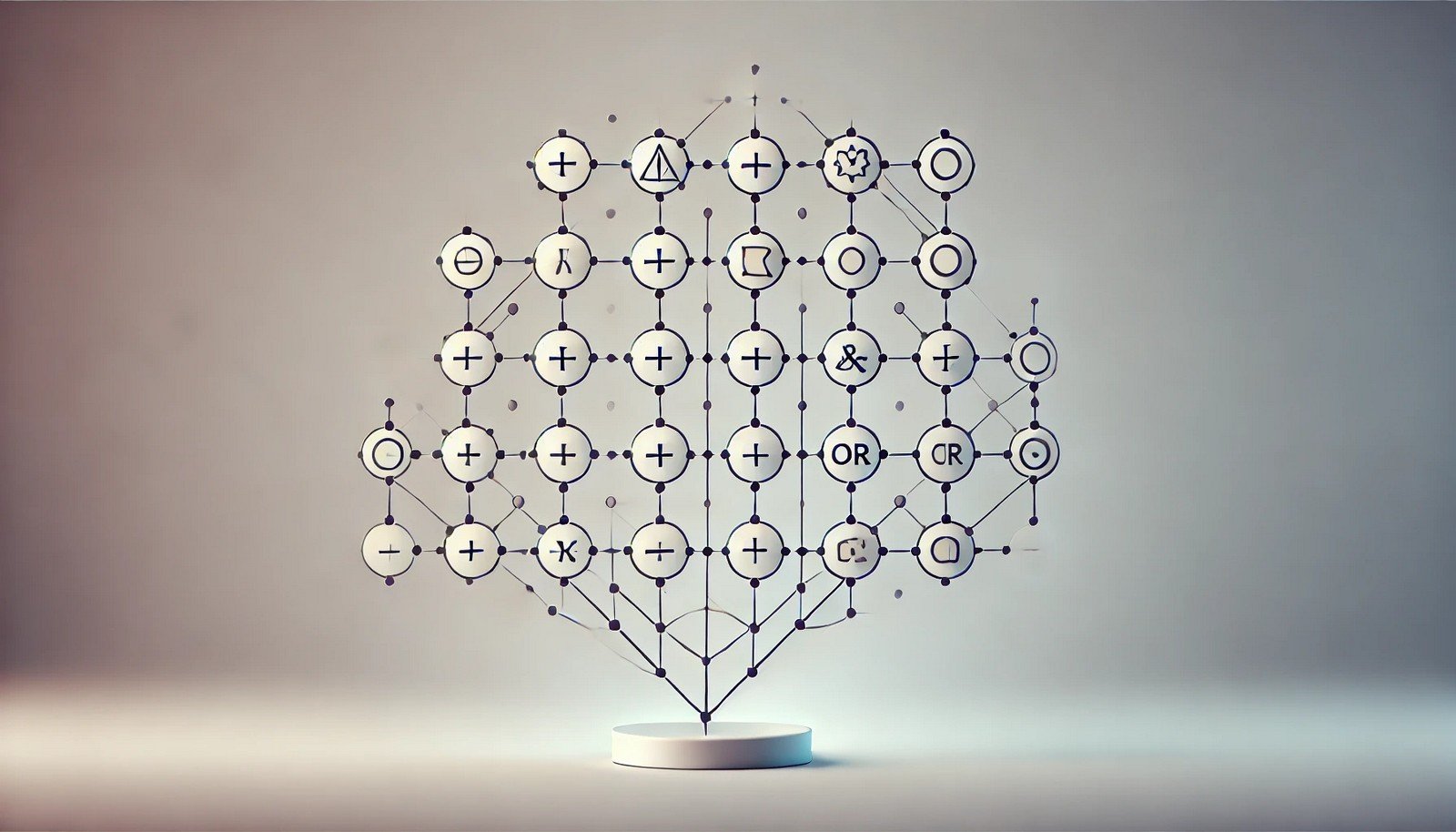Logic-based AI

Quick Navigation:
- Logic-based AI Definition
- Logic-based AI Explained Easy
- Logic-based AI Origin
- Logic-based AI Etymology
- Logic-based AI Usage Trends
- Logic-based AI Usage
- Logic-based AI Examples in Context
- Logic-based AI FAQ
- Logic-based AI Related Words
Logic-based AI Definition
Logic-based AI is a branch of artificial intelligence that focuses on using formal logic to enable reasoning, decision-making, and problem-solving. This approach relies on mathematical principles and logical frameworks, such as propositional and predicate logic, to represent and process knowledge. Logic-based AI is often used in systems that require rigorous reasoning, such as expert systems and automated theorem proving, where knowledge is encoded as rules or statements. These AI models can analyze, deduce, and generate logical conclusions based on the information they’re given, making them ideal for applications needing high levels of accuracy and consistency.
Logic-based AI Explained Easy
Imagine you have a set of rules for a game, and these rules tell you exactly what you can and can’t do. Logic-based AI works kind of like that—it follows strict rules to make decisions and solve problems. If it knows a few facts (like 1+1=2), it can use these facts to figure out other things by following the rules, like a puzzle solver!
Logic-based AI Origin
The origins of logic-based AI trace back to the 1950s and 1960s, inspired by developments in symbolic logic and mathematics. Early pioneers saw formal logic as a pathway to create machines that could "think" by applying rules and drawing conclusions in a systematic way. This approach led to the development of some of the earliest AI programs, including expert systems that mimicked human reasoning within specific fields, like medical diagnosis.
Logic-based AI Etymology
The term "logic-based" comes from "logic," which originates from the Greek word "logikē," meaning "the science of reasoning." This term reflects the AI’s reliance on structured reasoning, distinguishing it from other forms of AI, like machine learning, that rely on statistical methods rather than strict rules.
Logic-based AI Usage Trends
Logic-based AI has been foundational in the field of artificial intelligence, especially in the early decades. It was widely used in applications requiring high accuracy, such as expert systems in medicine, finance, and engineering. While modern AI trends focus on data-driven approaches, logic-based AI remains relevant for applications where explainability, consistency, and rigorous reasoning are critical, such as in legal AI systems and certain automated decision-making platforms. Its use is experiencing a resurgence as part of hybrid AI models, where logic-based methods combine with other AI techniques for more robust solutions.
Logic-based AI Usage
- Formal/Technical Tagging: Logic reasoning, symbolic AI, rule-based systems
- Typical Collocations: Logic-based AI models, rule-based reasoning, deductive systems, logical inference, expert systems
Logic-based AI Examples in Context
Medical diagnosis systems using logic-based AI can deduce possible illnesses based on a patient's symptoms by following a set of predefined medical rules.
Automated legal systems use logic-based AI to evaluate cases based on specific legal precedents and regulations.
Expert systems in engineering apply logic-based AI to assess and troubleshoot complex machinery by systematically ruling out possible faults.
Logic-based AI FAQ
- What is logic-based AI?
Logic-based AI uses formal logic to make decisions and solve problems through structured reasoning. - How is logic-based AI different from machine learning?
Logic-based AI relies on rules and logic, while machine learning learns patterns from data. - Where is logic-based AI used?
It’s often used in medical, legal, and financial fields where precise reasoning is essential. - Can logic-based AI learn from data?
Generally, no. It follows predefined rules and does not "learn" from data as machine learning models do. - Why is logic-based AI less common today?
Data-driven methods like machine learning have gained popularity, although logic-based AI is still used where strict logic is essential. - Is logic-based AI part of symbolic AI?
Yes, logic-based AI is a subset of symbolic AI, which uses symbols and rules to represent knowledge. - Can logic-based AI make mistakes?
If the logic or rules are flawed, it may reach incorrect conclusions, but it doesn’t make “mistakes” the way humans do. - What are examples of logic-based AI in daily life?
Rule-based chatbots and certain troubleshooting tools for electronics are based on logic-based AI. - Does logic-based AI require training?
No, it requires rule-setting and encoding but not training on data as machine learning models do. - How does logic-based AI work with other AI types?
It can complement other AI types by adding structured reasoning to data-driven models in hybrid systems.
Logic-based AI Related Words
- Categories/Topics: Artificial Intelligence, Symbolic Reasoning, Expert Systems, Knowledge Representation
- Word Families: Logic, reasoning, rule-based, symbolic AI, inference
Did you know?
In the 1980s, logic-based AI helped create some of the earliest medical diagnosis systems, like MYCIN, an expert system for infectious diseases. Although MYCIN was never used in hospitals, it demonstrated how AI could assist doctors with critical, life-saving decisions, setting the stage for AI’s role in medicine.
PicDictionary.com is an online dictionary in pictures. If you have questions or suggestions, please reach out to us on WhatsApp or Twitter.Authors | Arjun Vishnu | @ArjunAndVishnu

I am Vishnu. I like AI, Linux, Single Board Computers, and Cloud Computing. I create the web & video content, and I also write for popular websites.
My younger brother, Arjun handles image & video editing. Together, we run a YouTube Channel that's focused on reviewing gadgets and explaining technology.



Comments powered by CComment